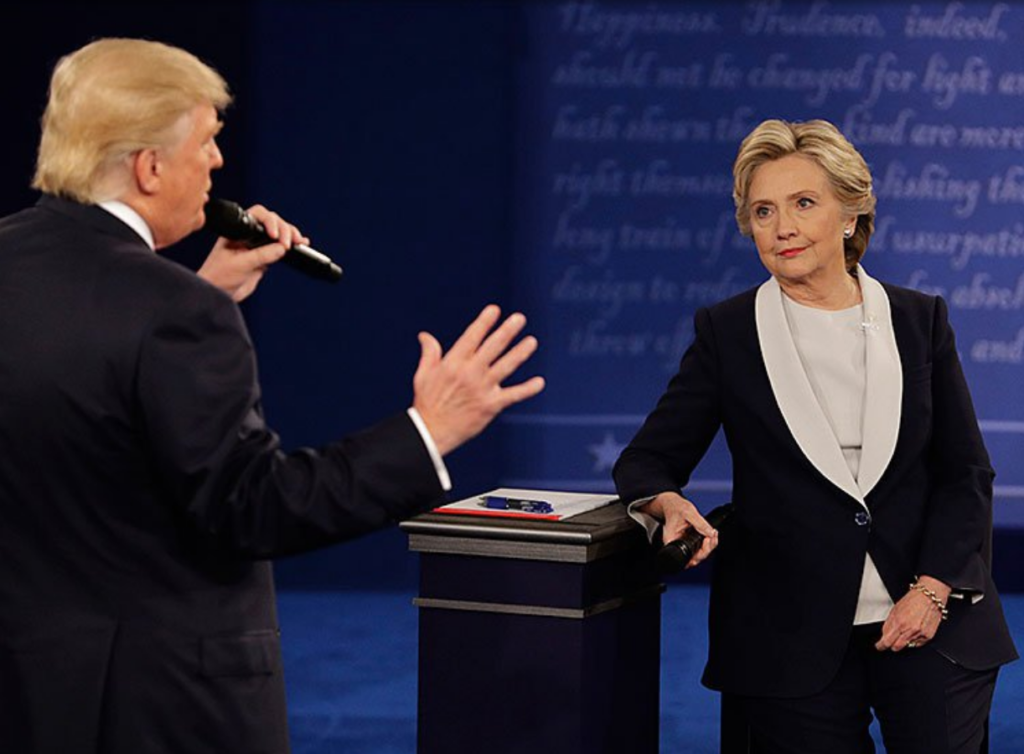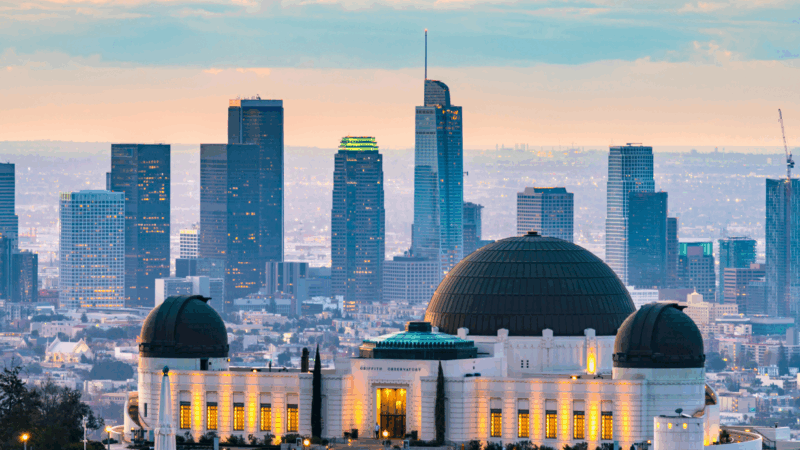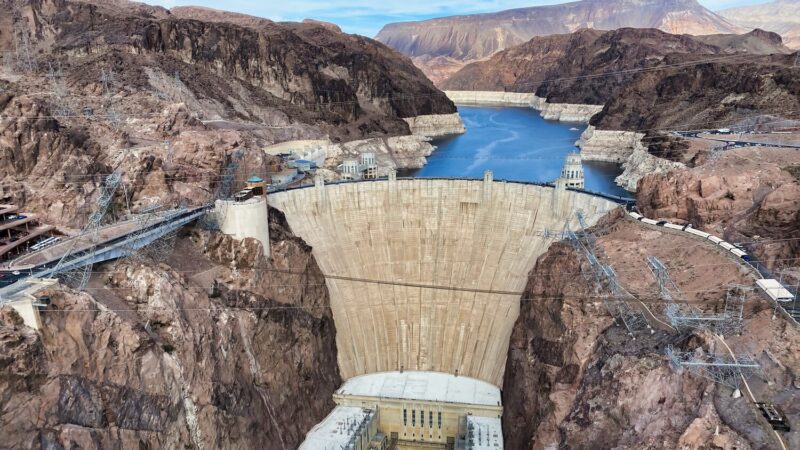
Climate change still up for debate?
Debate moderators have used immigration, gun control and abortion to contrast the ideological differences of Democratic candidate Hillary Clinton and her Republican counterpart Donald Trump. But they avoided climate change—an…
In a year of record temperatures, global warming is heating up everything but the United States presidential election.
Debate moderators have used immigration, gun control and abortion to contrast the ideological differences of Democratic candidate Hillary Clinton and her Republican counterpart Donald Trump. But they avoided climate change—an issue that starkly divides the nominees.
In last week’s third and final Clinton/Trump face-off, the issue wasn’t mentioned at all.
During the second debate, climate change came up only once (when Clinton responded to a question from an undecided voter), even though the debate came on the heels of Hurricane Mathew. The storm was pushed to category 5 strength by warmer-than-average temperatures. It killed more than 1,000 Haitians, 43 Americans and caused $6.9 billion worth of damage—making it the costliest storm since Hurricane Sandy in 2012.
With severe climate upheaval happening more rapidly than models have predicted, the fact that moderators haven’t addressed the issue baffles Ann Carlson, UCLA vice dean and environmental law professor.
“I’m stunned that in each debate climate change hasn’t been properly covered,” she says. “The omission is even more remarkable given the current progress being made to combat the threat.”
Just days before the second debate, the United Nations COP 21 Paris agreement to limit global temperature rise was ratified. “It’ll be implemented ahead of schedule which is pretty extraordinary,” says Carlson.
And on the state level, California has doubled down on its ambitious goal to reduce carbon emissions, mandating a 40 percent decrease by 2030 in accordance with Assembly Bill 32.
In the first debate, Clinton did briefly touch on climate change. As part of her jobs and energy strategy she plans to deploy 500 million more solar panels. “Some country is going to be the clean energy superpower of the twenty first century,” she challenged.
But she dropped the issue when Trump dismissed her suggestion. “We invested in a solar company, our country. That was a disaster. They lost plenty of money on that one,” he said.
“It’s surprising Clinton missed the opportunity to really drive this subject home, because she’s not avoiding tough issues,” Carlson says.
“She was very strong on abortion. And strong in a way that wasn’t mealy mouthed or trying to moderate her tone or words. It was a very strong embrace of a pro-choice position.”
Aside from debates, Clinton hasn’t been afraid to put climate change front and center on the campaign trail.
In Florida, Clinton teamed up with her husband’s former Vice President and climate champion, Al Gore. The duo sharply criticized Trump for his climate change denial while warning Floridians that they’re suffering the effects of climate change more acutely than any other part of the U.S. Cases of Zika virus are on the rise as warmer temperatures increase mosquito activity, and ocean water frequently gurgles up into Miami’s streets and sewer systems.
While there’s no mention of climate on Trump’s campaign website, his energy plan includes protecting natural habitats, clean air and water. It also promises an energy revolution, declaring American energy dominance as a strategic foreign and economic goal. During the campaign Trump has taken flak for a 2012 tweet where he said climate change was a hoax perpetrated by the Chinese.
While Trump has since tried to walk that tweet back, he maintains “I’m not a big believer in man-made climate change.”
Addressing climate doesn’t just show Clinton’s confidence in science, Democrats also hope it’ll broaden her appeal to millennial voters.
Millennials could make up as much as 25 percent of all U.S. voters—and are a demographic that’s vocally concerned about climate change.
The Clinton team got a boost from Oscar-winning actor and climate spokesman Leonardo DiCaprio at the premier of his new environmental documentary Before the Flood. DiCaprio says climate change is the biggest issue young people face, and voting is the most important thing they can do about it.
But it’s not just younger voters who are alarmed by rising greenhouse gas emissions. Recent studies find up to 70 percent of all registered voters are worried about global warming, and think carbon mitigation is important.
A Yale Program on Climate Change Communications survey found more than half of Trump’s supporters believe climate change is real.
Over the weekend in Gettysburg, Pennsylvania, Trump promised to cancel America’s payments to the United Nations climate change programs on day one in office.
As part of his personal contract with the American people, Trump also pledged to allow the Keystone XL pipeline to go through—a nod to northern shale oil production that scientist, James Hansen, sees as a “game over” for the climate.
“I will lift restrictions on $50 trillion of American energy resources—shale oil, natural gas and clean coal,” he declared.
With the election just two weeks away, the candidates maintain a clear climate change message; “a hoax” versus “the defining challenge of our time.”
Published:



